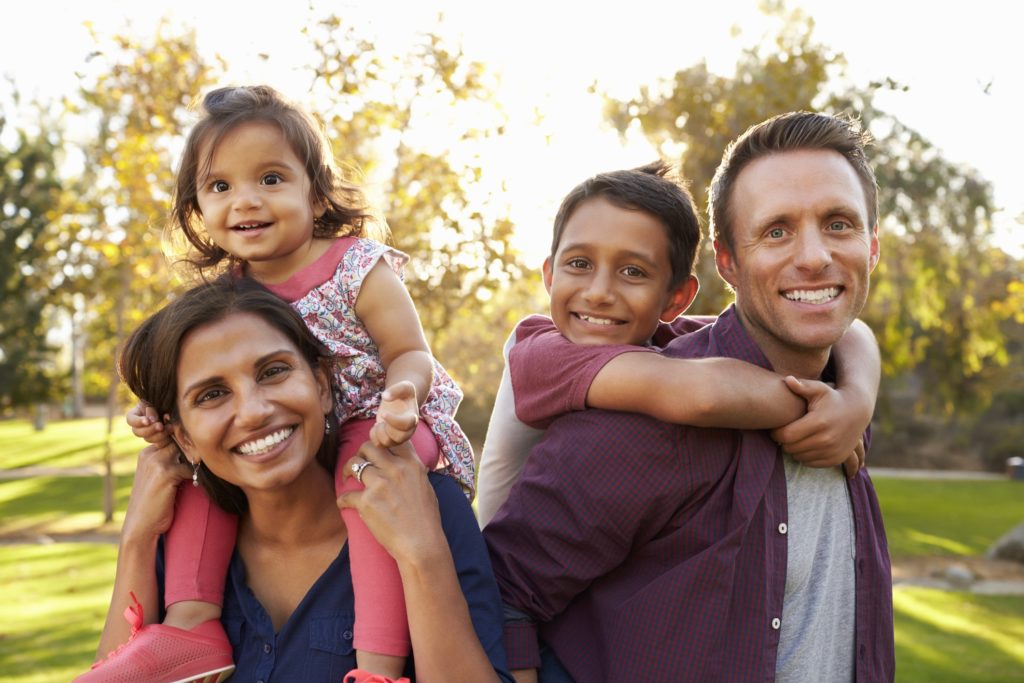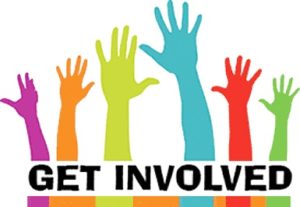Child to Parent Violence (CPV) is a topic that affects the lives of many adoptive parents and special guardianship carers, but is often difficult to talk about, with many families suffering in silence. In this guest blog, adoptive parent Becky tells us how PAC-UK’s specialist training helped her and her husband to understand they weren’t alone and helped them develop new tools to tackle challenging behaviour.

We adopted our twin daughters when they were three years old and they are now 11.
Like many families with adopted children, we went through honeymoon periods where things were fine but then it would be like somebody threw a hand grenade into the mix and we’d be struggling with challenging behaviour.
When you are a parent of two children, adopted or not, your arsenal runs out sometimes and you think “what can I do that’s different and what can I try this time?”.
Luckily, our social worker recommended PAC UK’s non-violent resistance training to us, saying it suggested really good ways of thinking about how you approach interacting with your children and your responses to them, so we felt like we should try it.
My husband and I had actually had the course recommended to us before but any time we’d looked into attending or discussed it we felt it wasn’t logistically possible as it was miles away in another city…. The joys of living in the southwest!
However, this was a rare example of COVID helping as the training was now available online, which was perfect for us as we didn’t have the stress of wondering ‘who is going to look after the children?’.
Even if there are family members who know them and their behaviours, finding childcare so they can attend in-person sessions is something many adoptive parents worry about and might be a barrier for some.
The ten-week course started early last year and I was very apprehensive at first; wondering who else was going to be on the course and if they are going to be better parents than us.
I worried that it would be emotional; that we were going to get upset telling our stories and I worried about how upset other people might be.
My husband does not like talking to people in groups he does not know, and he really struggled with this idea but we’d both decided that regardless of whatever other commitments we had on and how tired we were, we were going to see it through, and we did.
And I’m so glad.
I think the first two meetings I was a little bit guarded as we had to do a very basic breakdown of what our issues were, and I did not want to give too much away.
As an adoptive parent, you spend a lot of time forming a tight knit group because you are protecting your children – you don’t want everybody getting involved in your children’s story and their personal business.
But after sharing we realised how valuable this could be, as people said “We’ve been through that. try this” - It was a good thing for both of us as the course is designed to bring you out of your shell if you are a quieter person.
It felt like a totally safe space with people who understood and that is why it was so beneficial for us.
Sometimes it can feel quite insular, for example, when at the school gates you have got other parents talking about their children’s milestones, but the teachers walking over to you indicating they need to talk, and you think “here we go again”.
But having two of the PAC-UK course facilitators being adoptive parents themselves – one with kids similar in age to ours and one with children a lot older - was just really useful.
I think the first time one of them said “well, when that happened to us I did this” I worried, thinking “is it going to be someone preaching a sermon to me?” but then you then heard the parent of the older ones talk about their children and what they’re doing now.
It was a ‘light at the end of the tunnel moment’ where I realised “you’ve actually helped two children become well-rounded adults!”. It was so good to hear they had been through it, and it could be done.
It was funny as well.
We had time each week for reflection and self-care and some weeks were quite amusing because another lady and I got the giggles and, for some reason, we could not stop laughing. But it was fine and nobody minded, and that made it very light-hearted.
Even so, the reflection time was useful as you might have a cup of tea at home when you’ve got five minutes but you have often got the telly on, you are looking at your phone, or there are things on your mind… The chance to fully turn off was quite lovely actually.
One of the biggest things we take away from the course, in general, was that we wished we had accessed this support earlier in our parenting roles.
Often when people first make the decision to adopt there is a lot of support and training in the early days and you think you have all the tools you need… Until the day the children move in… And you realise you haven’t.
We used to laugh because we would bump into parents in the supermarket with twins and they’d give you an unspoken look… like they were saying “yes, we understand”.
You do kind of feel like once children have lived with you for a year, the court order goes through and they are legally your children and then the support drops away.
Nobody tells you how hard you are going to have to fight to get your children the support they need - whether it is from the school, the council or anywhere else.
That is why the feeling of support and camaraderie in the group was amazing - people telling the group that their child took an hour to put on their sock and them going “I get that”, and not judging you.
It was just so nice to hear an experienced voice who has been through it and can give you hope, saying “keep at it and your children are going to be amazing”.
But it was not just about feeling, as we were given practical tools that really work – for example, we learnt to prioritise addressing the behaviours that were really important.
That really was a game changer for us: Not sweating the small stuff.
It was also amusing to implement some of the tools we were given at home and see the look on our children’s faces saying “you’ve not done that one before”!
In general, we’ll now take a calmer approach where we’ll all calm down and come back to it when tensions are less high, whereas before we might have had knee-jerk reactions to things.
I would wholeheartedly recommend PAC-UK’s course to adoptive parents and special guardianship carers - we got so much out of it.
And it continues to give to this day, as we are still in contact with most of the people on the course – every couple of weeks we have a general “how’s everybody doing?” or somebody shares something they are going through and that has just been amazing.
It helps you to realise you are not an island.
Becky | September 2022

Become a PAC-UK 'guest blogger'
Please note, all content published on this page is provided by our guest blogger/s, based on their real-life experiences. We invite you to discuss this blog via PAC-UK's Twitter profile and ask you to tag @PACUKadoption in to your posts and use the hashtag #PacukBlog
This blog is the twenty-third of our regular 'guest blogger' platform which we started in 2019. We would love to hear from adoptees, birth parents (and relatives), adoptive parents/carers, special guardians and professionals who are interested in taking part in future blogs. If this interests you please email leon@pac-uk.org.



